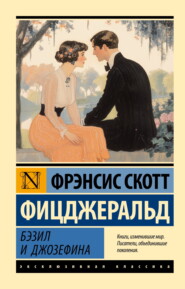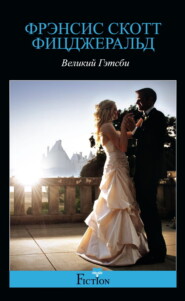По всем вопросам обращайтесь на: info@litportal.ru
(©) 2003-2024.
✖
The Great Gatsby
Настройки чтения
Размер шрифта
Высота строк
Поля
“No, it’s not exactly a police dog,” said the man with disappointment in his voice. “It’s more of an Airedale.” He passed his hand over the brown wash-rag of a back. “Look at that coat. Some coat. That’s a dog that’ll never bother you with catching cold.”
“I think it’s cute,” said Mrs. Wilson enthusiastically. “How much is it?”
“That dog?” He looked at it admiringly. “That dog will cost you ten dollars.”
The Airedale – undoubtedly there was an Airedale concerned in it somewhere, though its feet were startlingly white – changed hands and settled down into Mrs. Wilson’s lap, where she fondled the weatherproof coat with rapture.
“Is it a boy or a girl?” she asked delicately.
“That dog? That dog’s a boy.”
“It’s a bitch,” said Tom decisively. “Here’s your money. Go and buy ten more dogs with it.”
We drove over to Fifth Avenue, so warm and soft, almost pastoral, on the summer Sunday afternoon that I wouldn’t have been surprised to see a great flock of white sheep turn the corner.
“Hold on,” I said, “I have to leave you here.”
“No, you don’t,” interposed Tom quickly. “Myrtle’ll be hurt if you don’t come up to the apartment. Won’t you, Myrtle?”
“Come on,” she urged. “I’ll telephone my sister Catherine. She’s said to be very beautiful by people who ought to know.”
“Well, I’d like to, but – ”
We went on, cutting back again over the Park toward the West Hundreds. At 158th Street the cab stopped at one slice in a long white cake of apartment houses. Throwing a regal homecoming glance around the neighborhood, Mrs. Wilson gathered up her dog and her other purchases, and went haughtily in.
“I’m going to have the McKees come up,” she announced as we rose in the elevator. “And, of course, I got to call up my sister, too.”
The apartment was on the top floor – a small living-room, a small dining-room, a small bedroom, and a bath. The living-room was crowded to the doors with a set of tapestried furniture entirely too large for it, so that to move about was to stumble continually over scenes of ladies swinging in the gardens of Versailles. The only picture was an over-enlarged photograph, apparently a hen sitting on a blurred rock. Looked at from a distance, however, the hen resolved itself into a bonnet, and the countenance of a stout old lady beamed down into the room. Several old copies of Town Tattle lay on the table together with a copy of “Simon Called Peter” and some of the small scandal magazines of Broadway. Mrs. Wilson was first concerned with the dog. A reluctant elevator boy went for a box full of straw and some milk, to which he added on his own initiative a tin of large, hard dog-biscuits – one of which decomposed apathetically in the saucer of milk all afternoon. Meanwhile Tom brought out a bottle of whiskey from a locked bureau door.
I have been drunk just twice in my life, and the second time was that afternoon so everything that happened has a dim, hazy cast over it, although until after eight o’clock the apartment was full of cheerful sun. Sitting on Tom’s lap Mrs. Wilson called up several people on the telephone; then there were no cigarettes, and I went out to buy some at the drugstore on the corner. When I came back they had disappeared, so I sat down discreetly in the living-room and read a chapter of “Simon Called Peter” – either it was terrible stuff or the whiskey distorted things, because it didn’t make any sense to me.
Just as Tom and Myrtle (after the first drink Mrs. Wilson and I called each other by our first names) reappeared, company commenced to arrive at the apartment door.
The sister, Catherine, was a slender, worldly girl of about thirty with a solid, sticky bob of red hair and a complexion powdered milky white. Her eye brows had been plucked and then drawn on again at a more rakish angle but the efforts of nature toward the restoration of the old alignment gave a blurred air to her face. When she moved about there was an incessant clicking as innumerable pottery bracelets jingled up and down upon her arms. She came in with such a proprietary haste, and looked around so possessively at the furniture that I wondered if she lived here. But when I asked her she laughed immoderately, repeated my question aloud, and told me she lived with a girl friend at a hotel.
Mr. McKee was a pale, feminine man from the flat below. He had just shaved, for there was a white spot of lather on his cheekbone, and he was most respectful in his greeting to every one in the room. He informed me that he was in the “artistic game,” and I gathered later that he was a photographer and had made the dim enlargement of Mrs. Wilson’s mother which hovered like an ectoplasm on the wall. His wife was shrill, languid, handsome, and horrible. She told me with pride that her husband had photographed her a hundred and twenty-seven times since they had been married.
Mrs. Wilson had changed her costume some time before, and was now attired in an elaborate afternoon dress of cream-colored chiffon, which gave out a continual rustle as she swept about the room. With the influence of the dress her personality had also undergone a change. The intense vitality that had been so remarkable in the garage was converted into impressive hauteur. Her laughter, her gestures, her assertions became more violently affected moment by moment, and as she expanded the room grew smaller around her until she seemed to be revolving on a noisy, creaking pivot through the smoky air.
“My dear,” she told her sister in a high, mincing shout, “most of these fellas will cheat you every time. All they think of is money. I had a woman up here last week to look at my feet, and when she gave me the bill you’d of thought she had my appendicitis out.”
“What was the name of the woman?” asked Mrs. McKee.
“Mrs. Eberhardt. She goes around looking at people’s feet in their own homes.”
“I like your dress,” remarked Mrs. McKee, “I think it’s adorable.”
Mrs. Wilson rejected the compliment by raising her eyebrow in disdain.
“It’s just a crazy old thing,” she said. “I just slip it on sometimes when I don’t care what I look like.”
“But it looks wonderful on you, if you know what I mean,” pursued Mrs. McKee. “If Chester could only get you in that pose I think he could make something of it.”
We all looked in silence at Mrs. Wilson, who removed a strand of hair from over her eyes and looked back at us with a brilliant smile. Mr. McKee regarded her intently with his head on one side, and then moved his hand back and forth slowly in front of his face.
“I should change the light,” he said after a moment. “I’d like to bring out the modelling of the features. And I’d try to get hold of all the back hair.”
“I wouldn’t think of changing the light,” cried Mrs. McKee. “I think it’s – ”
Her husband said “Sh!” and we all looked at the subject again, whereupon Tom Buchanan yawned audibly and got to his feet.
“You McKees have something to drink,” he said. “Get some more ice and mineral water, Myrtle, before everybody goes to sleep.”
“I told that boy about the ice.” Myrtle raised her eyebrows in despair at the shiftlessness of the lower orders. “These people! You have to keep after them all the time.”
She looked at me and laughed pointlessly. Then she flounced over to the dog, kissed it with ecstasy, and swept into the kitchen, implying that a dozen chefs awaited her orders there.
“I’ve done some nice things out on Long Island,” asserted Mr. McKee.
Tom looked at him blankly.
“Two of them we have framed down stairs.”
“Two what?” demanded Tom.
“Two studies. One of them I call “Montauk Point” – The Gulls, and the other I call “Montauk Point” – The Sea.”
The sister Catherine sat down beside me on the couch.
“Do you live down on Long Island, too?” she inquired.
“I live at West Egg.”
“Really? I was down there at a party about a month ago. At a man named Gatsby’s. Do you know him?”
“I live next door to him.”
“Well, they say he’s a nephew or a cousin of Kaiser Wilhelm’s. That’s where all his money comes from.”
“Really?”
She nodded.
“I’m scared of him. I’d hate to have him get anything on me.”
This absorbing information about my neighbor was interrupted by Mrs. McKee’s pointing suddenly at Catherine:
“Chester, I think you could do something with her,” she broke out, but Mr. McKee only nodded in a bored way and turned his attention to Tom.
“I think it’s cute,” said Mrs. Wilson enthusiastically. “How much is it?”
“That dog?” He looked at it admiringly. “That dog will cost you ten dollars.”
The Airedale – undoubtedly there was an Airedale concerned in it somewhere, though its feet were startlingly white – changed hands and settled down into Mrs. Wilson’s lap, where she fondled the weatherproof coat with rapture.
“Is it a boy or a girl?” she asked delicately.
“That dog? That dog’s a boy.”
“It’s a bitch,” said Tom decisively. “Here’s your money. Go and buy ten more dogs with it.”
We drove over to Fifth Avenue, so warm and soft, almost pastoral, on the summer Sunday afternoon that I wouldn’t have been surprised to see a great flock of white sheep turn the corner.
“Hold on,” I said, “I have to leave you here.”
“No, you don’t,” interposed Tom quickly. “Myrtle’ll be hurt if you don’t come up to the apartment. Won’t you, Myrtle?”
“Come on,” she urged. “I’ll telephone my sister Catherine. She’s said to be very beautiful by people who ought to know.”
“Well, I’d like to, but – ”
We went on, cutting back again over the Park toward the West Hundreds. At 158th Street the cab stopped at one slice in a long white cake of apartment houses. Throwing a regal homecoming glance around the neighborhood, Mrs. Wilson gathered up her dog and her other purchases, and went haughtily in.
“I’m going to have the McKees come up,” she announced as we rose in the elevator. “And, of course, I got to call up my sister, too.”
The apartment was on the top floor – a small living-room, a small dining-room, a small bedroom, and a bath. The living-room was crowded to the doors with a set of tapestried furniture entirely too large for it, so that to move about was to stumble continually over scenes of ladies swinging in the gardens of Versailles. The only picture was an over-enlarged photograph, apparently a hen sitting on a blurred rock. Looked at from a distance, however, the hen resolved itself into a bonnet, and the countenance of a stout old lady beamed down into the room. Several old copies of Town Tattle lay on the table together with a copy of “Simon Called Peter” and some of the small scandal magazines of Broadway. Mrs. Wilson was first concerned with the dog. A reluctant elevator boy went for a box full of straw and some milk, to which he added on his own initiative a tin of large, hard dog-biscuits – one of which decomposed apathetically in the saucer of milk all afternoon. Meanwhile Tom brought out a bottle of whiskey from a locked bureau door.
I have been drunk just twice in my life, and the second time was that afternoon so everything that happened has a dim, hazy cast over it, although until after eight o’clock the apartment was full of cheerful sun. Sitting on Tom’s lap Mrs. Wilson called up several people on the telephone; then there were no cigarettes, and I went out to buy some at the drugstore on the corner. When I came back they had disappeared, so I sat down discreetly in the living-room and read a chapter of “Simon Called Peter” – either it was terrible stuff or the whiskey distorted things, because it didn’t make any sense to me.
Just as Tom and Myrtle (after the first drink Mrs. Wilson and I called each other by our first names) reappeared, company commenced to arrive at the apartment door.
The sister, Catherine, was a slender, worldly girl of about thirty with a solid, sticky bob of red hair and a complexion powdered milky white. Her eye brows had been plucked and then drawn on again at a more rakish angle but the efforts of nature toward the restoration of the old alignment gave a blurred air to her face. When she moved about there was an incessant clicking as innumerable pottery bracelets jingled up and down upon her arms. She came in with such a proprietary haste, and looked around so possessively at the furniture that I wondered if she lived here. But when I asked her she laughed immoderately, repeated my question aloud, and told me she lived with a girl friend at a hotel.
Mr. McKee was a pale, feminine man from the flat below. He had just shaved, for there was a white spot of lather on his cheekbone, and he was most respectful in his greeting to every one in the room. He informed me that he was in the “artistic game,” and I gathered later that he was a photographer and had made the dim enlargement of Mrs. Wilson’s mother which hovered like an ectoplasm on the wall. His wife was shrill, languid, handsome, and horrible. She told me with pride that her husband had photographed her a hundred and twenty-seven times since they had been married.
Mrs. Wilson had changed her costume some time before, and was now attired in an elaborate afternoon dress of cream-colored chiffon, which gave out a continual rustle as she swept about the room. With the influence of the dress her personality had also undergone a change. The intense vitality that had been so remarkable in the garage was converted into impressive hauteur. Her laughter, her gestures, her assertions became more violently affected moment by moment, and as she expanded the room grew smaller around her until she seemed to be revolving on a noisy, creaking pivot through the smoky air.
“My dear,” she told her sister in a high, mincing shout, “most of these fellas will cheat you every time. All they think of is money. I had a woman up here last week to look at my feet, and when she gave me the bill you’d of thought she had my appendicitis out.”
“What was the name of the woman?” asked Mrs. McKee.
“Mrs. Eberhardt. She goes around looking at people’s feet in their own homes.”
“I like your dress,” remarked Mrs. McKee, “I think it’s adorable.”
Mrs. Wilson rejected the compliment by raising her eyebrow in disdain.
“It’s just a crazy old thing,” she said. “I just slip it on sometimes when I don’t care what I look like.”
“But it looks wonderful on you, if you know what I mean,” pursued Mrs. McKee. “If Chester could only get you in that pose I think he could make something of it.”
We all looked in silence at Mrs. Wilson, who removed a strand of hair from over her eyes and looked back at us with a brilliant smile. Mr. McKee regarded her intently with his head on one side, and then moved his hand back and forth slowly in front of his face.
“I should change the light,” he said after a moment. “I’d like to bring out the modelling of the features. And I’d try to get hold of all the back hair.”
“I wouldn’t think of changing the light,” cried Mrs. McKee. “I think it’s – ”
Her husband said “Sh!” and we all looked at the subject again, whereupon Tom Buchanan yawned audibly and got to his feet.
“You McKees have something to drink,” he said. “Get some more ice and mineral water, Myrtle, before everybody goes to sleep.”
“I told that boy about the ice.” Myrtle raised her eyebrows in despair at the shiftlessness of the lower orders. “These people! You have to keep after them all the time.”
She looked at me and laughed pointlessly. Then she flounced over to the dog, kissed it with ecstasy, and swept into the kitchen, implying that a dozen chefs awaited her orders there.
“I’ve done some nice things out on Long Island,” asserted Mr. McKee.
Tom looked at him blankly.
“Two of them we have framed down stairs.”
“Two what?” demanded Tom.
“Two studies. One of them I call “Montauk Point” – The Gulls, and the other I call “Montauk Point” – The Sea.”
The sister Catherine sat down beside me on the couch.
“Do you live down on Long Island, too?” she inquired.
“I live at West Egg.”
“Really? I was down there at a party about a month ago. At a man named Gatsby’s. Do you know him?”
“I live next door to him.”
“Well, they say he’s a nephew or a cousin of Kaiser Wilhelm’s. That’s where all his money comes from.”
“Really?”
She nodded.
“I’m scared of him. I’d hate to have him get anything on me.”
This absorbing information about my neighbor was interrupted by Mrs. McKee’s pointing suddenly at Catherine:
“Chester, I think you could do something with her,” she broke out, but Mr. McKee only nodded in a bored way and turned his attention to Tom.

















